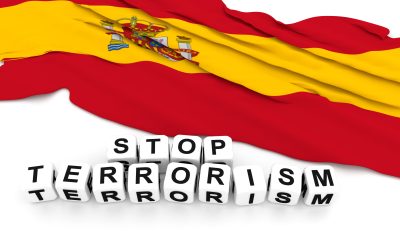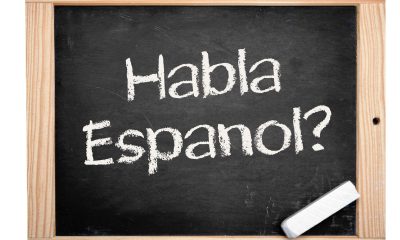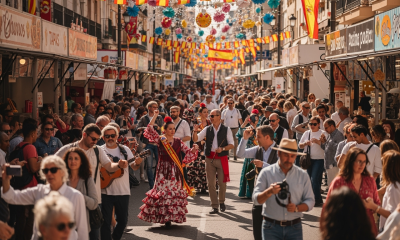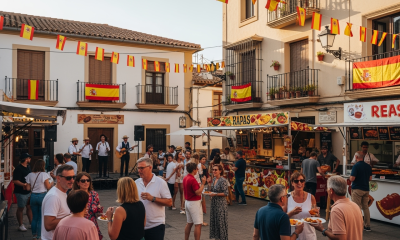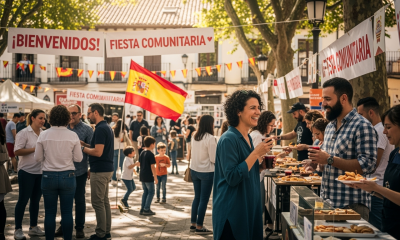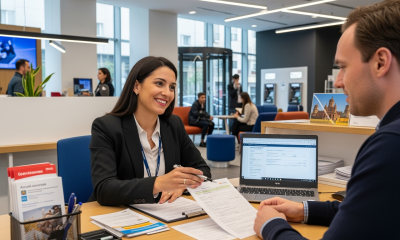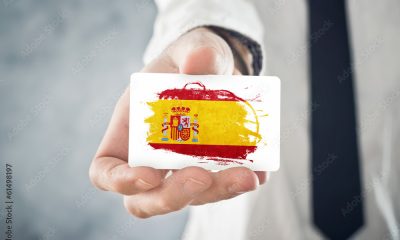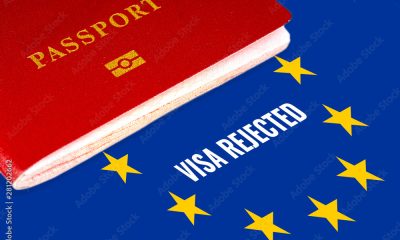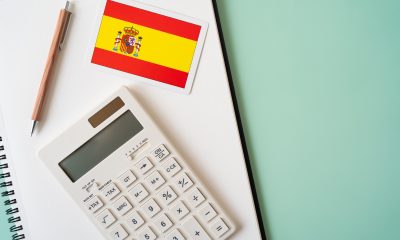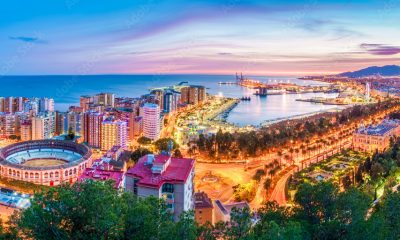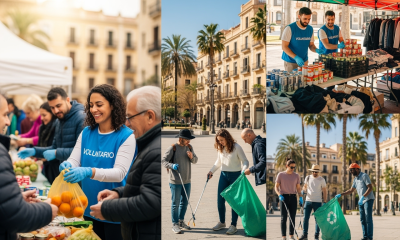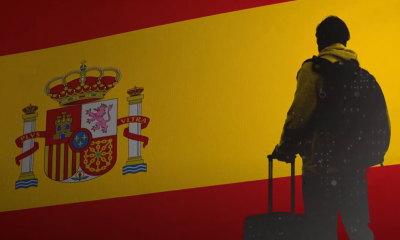Spanish System
Obtain a Spanish Passport
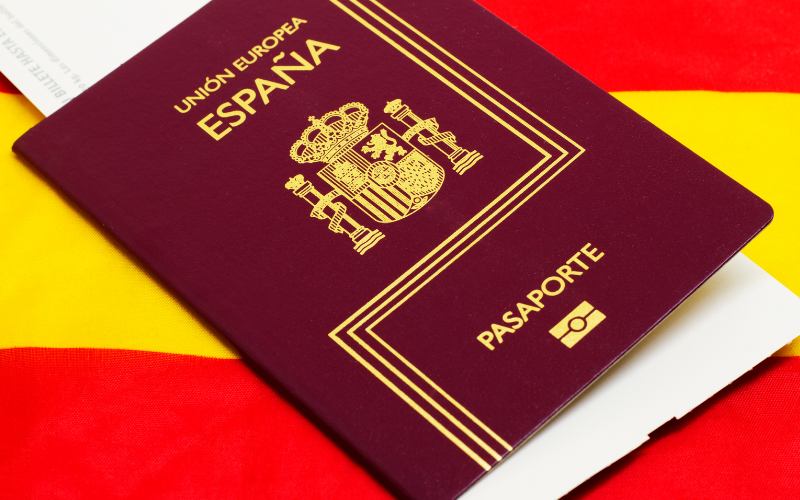
Obtaining a Spanish passport as a foreigner typically involves a multi-step process, and eligibility criteria may vary depending on your circumstances,
such as your residency status and the basis for your application.
Here are the general steps you may need to follow
Establish Residency:
To apply for a Spanish passport, you usually need to be a legal resident of Spain.
This means you must have the appropriate residence permit or visa.
Resident in Spain:
In most cases, you will need to have lived in Spain for a certain period of time, often several years, to be eligible for citizenship and a Spanish passport.
Meet Eligibility Criteria:
There are different pathways to Spanish citizenship, and the eligibility criteria may include:
Residency duration: You may need to reside in Spain for a specific number of years, usually at least 10 years, although shorter periods apply to certain circumstances.
Marriage to a Spanish citizen: If you are married to a Spanish citizen, you may be eligible for citizenship sooner.
Birth in Spain: If you were born in Spain, you might be eligible for citizenship.
Sephardic heritage: There is a special citizenship route for individuals of Sephardic Jewish heritage.
Gather Required Documents:
Collect the necessary documents, which typically include:
Residence permit or visa
Proof of residence in Spain (e.g., utility bills, rental agreements)
Criminal record certificate from your home country
Birth certificate
Marriage certificate (if applicable)
Proof of financial stability
Certificate of integration (in some cases)
Proof of language proficiency (Spanish)
Apply for Citizenship:
Submit your application for Spanish citizenship to the competent authorities, typically the Ministry of Justice or a local civil registry office.
Pass Language and Integration Tests:
Depending on your circumstances, you may be required to demonstrate proficiency in Spanish and pass an integration test.
Pay Fees:
Pay the required application fees.
Wait for Processing:
Citizenship applications can take several months to process, so be prepared for some waiting time.
Attend an Interview (if necessary):
You may be called for an interview as part of the application process.
Take the Oath of Allegiance:
If your application is approved, you will be required to take an oath of allegiance to Spain.
Obtain Spanish Passport:
Once you have been granted Spanish citizenship, you can apply for a Spanish passport at the nearest police station or Passport Office.
Please note that the rules and requirements for obtaining Spanish citizenship and a passport can change over time, so it’s essential to check with the Spanish government or a legal expert for the most up-to-date information and guidance tailored to your specific situation.
Additionally, the process may vary for individuals from different countries and with different circumstances.
Banking & Finances
How to handle Spanish tax audits and inspections as a foreigner

Published: August 2025
Navigating the Spanish tax system can be challenging for expats, especially when facing a tax audit or inspection. Understanding your rights, obligations, and the process is key to avoiding stress and costly mistakes. Here’s a practical guide for foreigners in Spain on how to handle tax audits and what to expect if the Spanish tax authorities (Agencia Tributaria) come knocking.
Why you might be audited in Spain
Spanish tax authorities select cases for audit based on random checks, discrepancies in your tax return, high-value transactions, or information from other countries. Common triggers include unreported income, sudden changes in declared assets, or inconsistencies with bank data.
The audit process explained
- Notification: You’ll receive an official letter (“requerimiento”) by post or via your digital mailbox (Agencia Tributaria).
- Document request: You must provide supporting documents (bank statements, contracts, invoices, proof of residence, etc.) within the deadline stated.
- Meeting or inspection: Sometimes you’ll be invited for an interview or an inspector may visit your home or business.
- Resolution: The authorities will issue a decision—either closing the case or making an adjustment (which may include fines or back taxes).
- Appeal: You have the right to appeal decisions through administrative or legal channels.
Key tips for expats facing a tax audit
- Keep all tax-related documents for at least 4-5 years.
- Respond promptly and politely to any official requests.
- Use a registered tax advisor if you’re unsure—many specialize in expat cases.
- Don’t ignore letters from Agencia Tributaria, even if you’re abroad.
- Be honest—deliberate fraud is punished severely in Spain.
Common documents you might need
- Bank statements and account summaries (Spanish and foreign)
- Employment contracts or freelance invoices
- Proof of residency (empadronamiento, rental contracts, utility bills)
- Declarations of overseas assets (Modelo 720)
- Receipts for deductible expens
FAQ: Spanish tax audits and inspections
How will I know if I’m being audited? You’ll receive an official notification by post or digitally from Agencia Tributaria. Do I need to speak Spanish to handle an audit? It helps, but you can use a certified advisor or translator if needed. How long does a tax audit take? Most audits are resolved within a few months, but complex cases can take longer. What happens if I ignore the audit? Ignoring official requests can lead to fines, asset freezes, or legal action. Can I appeal a tax decision? Yes, you have the right to appeal administratively or through the courts. Are foreigners targeted more than locals? Not specifically, but expats with foreign income or assets may get extra scrutiny. What is Modelo 720? It’s a declaration of overseas assets, required for residents with more than €50,000 abroad. Do I need a lawyer for a tax audit? Not always, but complex cases or appeals benefit from professional help. What documents should I keep? All tax returns, bank statements, contracts, and proof of residency for at least 4-5 years. Can I get help in English? Many tax advisors in Spain speak English and are experienced with expat cases.
Disclaimer: This article is for informational purposes only. Always consult a professional for specific tax advice.
Legal Requirements & Documentation
Driving in Spain in 2025: Updated rules for EU and non-EU license holders

Published: August 2025
If you’re moving to Spain or already living here as an expat, understanding the latest rules for driving licenses is essential. In 2025, Spain follows EU-wide harmonization, making it easier for most EU/EEA citizens to drive legally without unnecessary bureaucracy. However, there are still important differences depending on where your license was issued. Here’s what you need to know about using your driving license in Spain as a foreign resident.
EU/EØS driving licenses: No mandatory exchange
If you hold a valid driving license from another EU or EEA country, you can legally drive in Spain without exchanging your license. There is no general requirement to swap your EU license for a Spanish one simply because you become resident.
- Validity: Your EU/EEA license is valid as long as it is up to date and not suspended or revoked in your home country.
- Renewal: If your license expires while you are resident in Spain, you must renew it with the Spanish authorities (DGT). You will then receive a Spanish license.
- Unlimited Validity: If your EU license is issued with unlimited validity, you must exchange it for a Spanish one after 2 years of residence.
- Traffic Offenses: Spanish authorities may require you to exchange your license if you commit certain offenses or if your license is lost or stolen.
- Voluntary Exchange: You can choose to exchange your EU/EEA license for a Spanish one at any time if you prefer.
UK and non-EU Licenses: what applies in 2025?
For UK citizens, post-Brexit agreements mean you can now exchange your UK license for a Spanish one without taking a driving test, provided it’s valid and you apply within the legal timeframe after becoming resident. For other non-EU countries, the rules depend on bilateral agreements:
- Countries with Agreements: Citizens from countries with a bilateral agreement (e.g. UK, Switzerland, Japan, South Korea) can exchange their license for a Spanish one without a test, within 6 months of obtaining residency.
- Countries without Agreements: If your country does not have an agreement with Spain (e.g. USA, Canada, Australia), you must obtain a Spanish license by passing both the theory and practical driving tests in Spain.
- 6-Month Rule: Non-EU licenses are only valid for 6 months after you become resident. After that, you must either exchange (if possible) or obtain a Spanish license.
How to exchange your license (If required)
- Check Eligibility: See if your country has an agreement with Spain on the DGT website.
- Book Appointment: Schedule an appointment at your local DGT office (Jefatura Provincial de Tráfico).
- Prepare Documents:
- Valid passport and NIE
- Proof of residency (empadronamiento)
- Your original driving license
- Recent passport photo
- Medical fitness certificate (psicotécnico)
- Completed application form and proof of payment
- Process: The DGT will keep your original license and issue a Spanish one, usually within 1–2 months.
Special cases & practical tips
- Always carry your driving license, passport/NIE, and proof of insurance when driving in Spain.
- If your license is not in Spanish, it’s recommended to have an official translation or International Driving Permit (IDP) for short stays.
- Never drive with an expired license – renew it promptly to avoid fines.
- For rental cars, EU/EEA licenses are always accepted; non-EU licenses may require an IDP.
- Stay updated with the latest rules on the DGT website.
FAQ
Do I need to exchange my EU license just because I move to Spain?
No, as long as it’s valid and not unlimited. You only need to exchange if it expires, is lost, or is issued with unlimited validity (after 2 years).
What if my country doesn’t have an agreement with Spain?
You’ll need to pass the Spanish driving theory and practical tests to get a Spanish license.
Can I voluntarily exchange my EU license for a Spanish one? Yes,
you can apply for an exchange at any time if you prefer a Spanish license.
What about UK licenses post-Brexit?
UK licenses can be exchanged for Spanish ones without a test, if you apply within the legal timeframe after residency.
Disclaimer: This article is for informational purposes only and does not constitute legal advice. Always check with the DGT or your local traffic authority for the latest updates.
Integration & Community
Why Malaga is Spain’s Top destination for Digital Nomads in 2025

Published: August 2025
As remote work continues to rise, Spain’s digital nomad visa has opened the country to an influx of international talent. While cities like Barcelona and Madrid often steal the spotlight, Malaga is fast emerging as one of the most attractive and practical choices for digital nomads in 2025. This article explores why Malaga stands out, what you can expect as a remote worker here, and how to make the most of your experience on the Costa del Sol.
Malaga: The perfect blend of work and lifestyle
Located on the sunny Costa del Sol, Malaga offers a unique mix of Mediterranean climate, vibrant urban life, and a relaxed seaside atmosphere. With more than 320 days of sunshine per year, miles of beaches, and a lively cultural scene, Malaga is ideal for digital nomads seeking both productivity and quality of life.
Why Digital Nomads are choosing Malaga in 2025
- Excellent connectivity: Malaga Airport offers direct flights to major European cities. The city’s high-speed train links to Madrid and Barcelona in just a few hours.
- Affordable cost of living: Compared to Madrid and Barcelona, Malaga offers lower rents, cheaper dining, and affordable coworking spaces, making it ideal for freelancers and remote workers on a budget.
- Modern infrastructure: Malaga boasts fast fiber-optic internet, modern coworking spaces, and a growing tech ecosystem. The city is home to the “Malaga TechPark,” attracting startups and digital entrepreneurs from around the world.
- Vibrant expat & nomad community: With a large international population, you’ll find meetups, networking events, and language exchanges every week. The city is friendly, open, and easy to navigate for newcomers.
- Unmatched lifestyle: Enjoy fresh seafood, tapas bars, flamenco nights, and outdoor activities like hiking in the Montes de Málaga, surfing, or exploring the historic city center.
How to get started as a Digital Nomad in Malaga
- Apply for the Digital Nomad Visa:
- Gather required documents: proof of remote work, income, health insurance, and a clean criminal record.
- Submit your application online or at your local Spanish consulate.
- Once approved, you can enter Spain and register your address in Malaga.
- Find Accommodation:
- Popular neighborhoods for nomads include Soho, El Centro Histórico, and La Malagueta (for beach lovers).
- Use platforms like Idealista, Spotahome, or local Facebook groups to find short- and long-term rentals.
- Choose a Coworking Space:
- Malaga has a wide range of coworking spaces, such as The Living Room, Urban Lab, and Innovation Campus, offering flexible memberships, fast Wi-Fi, and a social atmosphere.
- Register Locally:
- Empadronamiento (local registration) is required for most official paperwork and access to public services. Visit Malaga’s town hall with your rental contract and passport.
- Join the Community:
- Look for digital nomad meetups, tech events, and language exchanges on Meetup.com, Eventbrite, or local Facebook groups.
Cost of living in Malaga (2025)
- Rent: €700–€1,200/month for a one-bedroom apartment in the city center; cheaper options available in surrounding neighborhoods.
- Coworking: €200–€450/month for a hot desk in a quality coworking space.
- Dining out: Tapas from €2, set lunch menus (menú del día) from €10–€15.
- Transport: Local buses and metro from €1.40 per ride; city bikes and electric scooters are widely available.
- Utilities & internet: Around €60–€120/month for a small apartment with fast Wi-Fi.
Tips for thriving as a Digital Nomad in Malaga
- Learn some basic Spanish – locals appreciate it, and it will help with bureaucracy and daily life.
- Take advantage of Malaga’s outdoor lifestyle: work from a beach café, take a lunchtime swim, or hike at sunset.
- Network! The city’s digital nomad and tech scene is growing fast, and connections can lead to new friends, job opportunities, and collaborations.
- Consider day trips to nearby gems like Ronda, Nerja, or the Caminito del Rey for inspiration and adventure.
- Stay informed about local events, festivals, and public holidays to make the most of your time in Malaga.
Useful resources
- Malaga City Hall (Ayuntamiento de Málaga)
- Malaga WorkBay – Resources for Digital Nomads
- Meetup – Malaga Events & Groups
- New in Spain – Guides and Updates
FAQ
Is Malaga safe for digital nomads?
Yes, Malaga is considered one of the safest cities in Spain, with a welcoming atmosphere and a strong expat community.
Can I find English-speaking doctors and services?
Absolutely. Many clinics, hospitals, and service providers in Malaga cater to international residents and speak English.
What is the digital nomad scene like?
Malaga’s digital nomad scene is growing rapidly, with regular events, active coworking spaces, and a supportive community of locals and internationals.
Disclaimer: This article is for informational purposes only and does not constitute legal or financial advice. Always check the latest regulations and consult with professionals for your specific situation.













